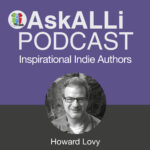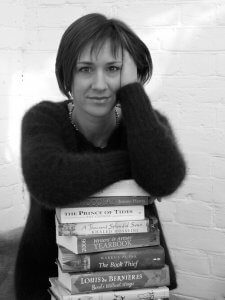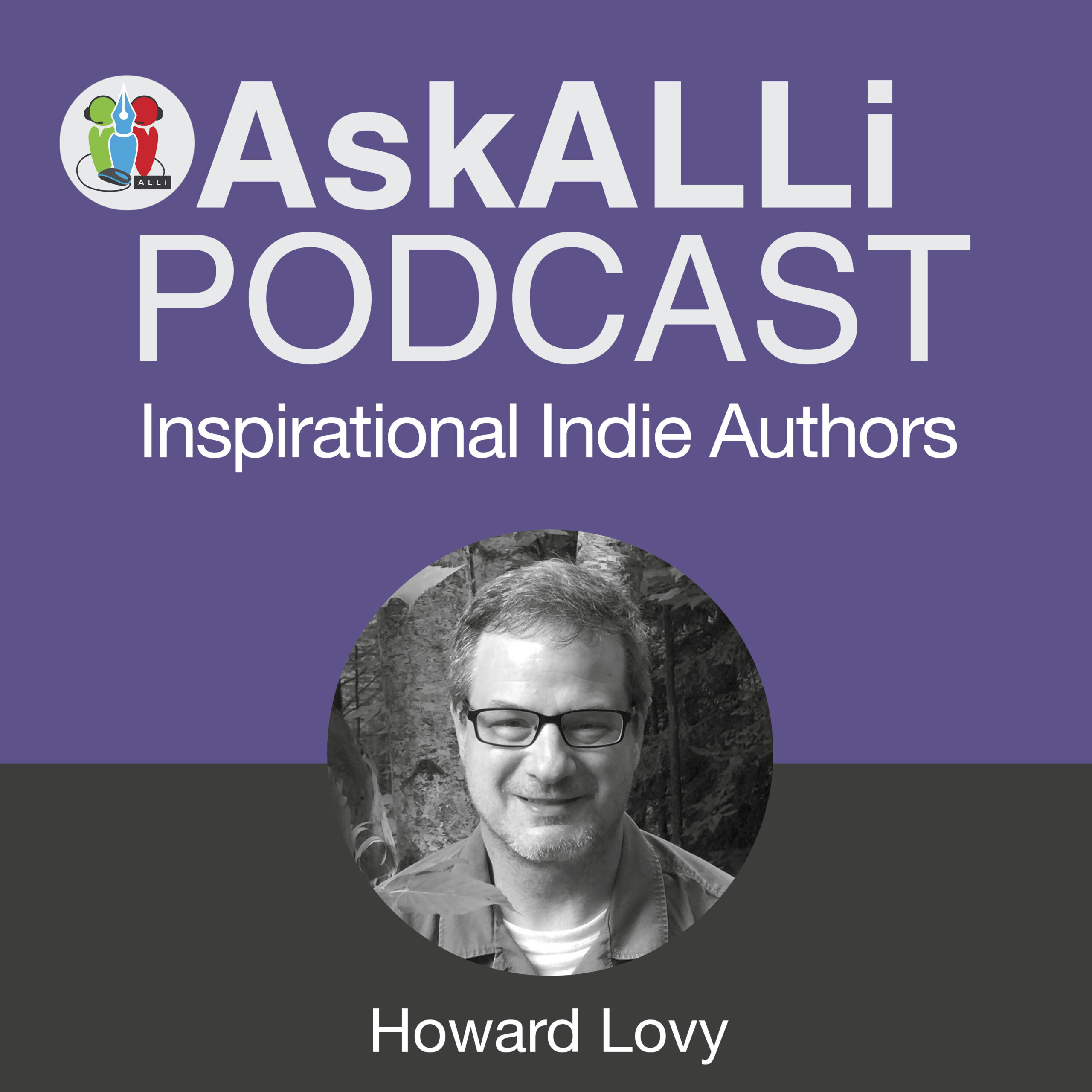 We don't have very many rock stars in the indie publishing world, but a few have risen to the top with a reputation for producing wonderfully written, compelling books that stand out as great literature, no matter what label you put on it. One of them is Inspirational Indie Author Jane Davis.
We don't have very many rock stars in the indie publishing world, but a few have risen to the top with a reputation for producing wonderfully written, compelling books that stand out as great literature, no matter what label you put on it. One of them is Inspirational Indie Author Jane Davis.
Jane was recently recognized as one of the best self-published authors of the year with the new Selfie awards for her book called Smash All The Windows, which is also smashing all the preconceptions many people have about self published books.

Jane Davis
Smash all the Windows is based on a real disaster in a football stadium in 1989. Jane discusses how fiction can help humanize big disasters, placing them in perspective while assigning what she calls “unblame.”
A few highlights ..
On the Importance of Beta Readers
It's vital because you're working on a book for such a long time on your own. I'm quite superstitious. I don't like to talk about a work in progress, but I do a lot of self editing before I test the waters with beta readers. And then I weave their recommendations through the book. To be honest, I had some fantastic comments from beta readers that I think things even that professionals would have missed.
On taking another look at disaster and assigning ‘unblame'
In the Hillsborough case, the victims themselves had been made out to be almost criminalized, almost demonized, to take the emphasis away from the police or authorities, or other people. They were almost being told, “No, you caused your own, you know, you were the cause of your own deaths. You contributed to that.” And my book, I wanted my book to be about unblame rather than about blaming other people.”
Listen to the Interview
Subscribe to our Ask ALLi podcast on iTunes, Stitcher, Player.FM, Overcast, Pocket Casts, or via our RSS feed:
If you haven’t already, we invite you to join our organization and become a self-publishing ally. You can do that at http://allianceindependentauthors.org.
Inspirational Indie Authors: Award-Winner Jane Davis Makes Real Tragedy More Understandable Through Fiction Share on XAbout the Host
Howard Lovy has been a journalist for more than 30 years, and has spent the last five years amplifying the voices of independent publishers and authors. He works with authors as a book editor to prepare their work to be published. Howard is also a freelance writer specializing in Jewish issues whose work appears regularly in Publishers Weekly and Longreads. Find Howard on LinkedIn and Twitter.
Read the Transcripts
Howard: I'm Howard Lovy and you're listening to Inspirational Indie Authors. You know, we don't have very many rock stars in the indie publishing world, but a few have risen to the top with a reputation for producing wonderfully written, compelling books that stand out as great literature, no matter what label you put on it. One of them is my guest today, Jane Davis, who was recently recognized as one of the best self published authors of the year with the new Selfie awards for her book called Smash All The Windows, which is also smashing all the preconceptions many people have about self published books. Hello Jane and welcome to Inspirational Indie Authors.
Jane: Hello Howard. I must admit I've never been called a rockstar before, so that's the first of me.
Howard: Well, you know, just go with it and then take it, you know.
Jane: I'll enjoy that one.
Howard: Well first tell me what the Selfies are and how you felt when you found out you won.
Jane: Well, the Selfies is a new award this year that was presented at London Book Fair. And when you think that London Book Fair only opened its doors to authors back in 2012, there's been leaps and bounds since then. But the thing that I particularly liked about the award, it wasn't just about the writing but it was about the whole publication process and standards. So it acknowledged your publishing standards. So the edit had to be right, it had to be proofread properly, it looked at the cover design, it looked at production, it looked at your marketing plans and results. So it's really the whole package. And so as a self publisher, you know, I always say that's a misnomer because I have a team of 35 people behind me and to me it's a really nice thing for me to be able to say to them, you know, we're an award winning team.
Howard: Right.
Jane: It's actually the second award of that type I've had. So I had another one back in 2016. I've got this great team around me. People mustn't think when they hear the word self publishing that it's me on my own pushing a button. I have an amazing amount of support and I really it's a big thank you to them.
Howard: And also one of your editors is a name we all know at ALLi-
Jane: Yes.
Howard: Our Director Dan Holloway.
Jane: Yes, that's right.
Howard: How important was it to have all these other eyes on your work?
Jane: No, it's totally, it's vital because you're working on a book for such a long time on your own. I'm quite superstitious. I don't like to talk about a work in progress, but I do a lot of self editing before I test the waters with Beta readers. And then I weave their recommendations through the book. I, to be honest, I had some fantastic comments from Beta readers that I think things even that professionals would have missed. I mean, I don't have children myself and one of my Beta readers had kept a pregnancy diary and she basically gave me the diary and said, I think your one of your characters who is pregnant is a bit too generic, so please have this and use whatever you like from it. So that's, that's an amazing gift for someone like me.
Jane: Right. And I was able to use quite a few of her suggestions in that, but I also had someone who after the professionals had had their hands on the book, a Beta reader came back. She hadn't been able to keep to the time limit I gave her and she happened to be reading the book over the bank holiday weekend, which we have in the UK in August. And she contacted me. I said, “Look, I haven't finished it, but I've just realized that you've got a 15 year old boy wearing school uniform during the school holidays.” And it just hadn't struck me that the kids wouldn't have gone back to school on that particular date. In fact, in Scotland they would have gone back to school, but in England they don't go back to school til the first week in September.
Jane: So it's input like that that the small details that sometimes get overlooked, as well as the bigger picture. You know, one of the things you mentioned Dan Holloway and he really does challenge you on the bigger picture. So after you've been working on a book for so long it's so important to have some objectivity back and have people read it for the first time because, you know, I might've read it 50 times over and it just starts to, you know, it gets inside your brain, you need fresh eyes on it.
Howard: Right. That's what I tell editing clients too that the editor plays the role of the average reader. Smash All The Windows is based on a real disaster in a football stadium in 1989 that you fictionalize. First, why did it need to be fictionalized and how did you settle on the final premise?
Jane: Well, I really felt that I didn't have any rights to, I didn't have any direct connection to the Hillsborough disaster. What started the novel really was my anger at hearing about the presses reaction to the second inquest. And it'd taken, I think it's the 40 year anniversary of the disaster this year. So it's only a couple of years ago that this happened, that the family finally got some sort of justice and actually there's more criminal prosecutions going on now. And the-
Howard: Briefly, for those of us in the States who aren't necessarily familiar with the disaster-
Jane: It's a disaster at a football stadium where 80 odd fans were crushed to death. Basically there were too many people in the stands and the stands then were not what they are now. They were all standing and they were crushed up, you know, basically people went through a tunnel and went to, into an error that was already full. And, it was a terrible, terrible event, because people didn't realize really what was going on. But, you know, there were faults with the stadium that hadn't been picked up on before. There were faults with the police action and it's been terribly complicated unraveling what actually happened.
Howard: in your book. You, you turned it into something else though.
Jane: Yes. I mean, I, it's a book. The event was something that I didn't feel I had a direct connection with. It has also been dramatized and fictionalized by other people, but with the blessing of the families of the victims and a lot had already been said about it and my angle was slightly different. My angle was the reaction to the second inquest where there's a criminologist, Phil Stratton who'd been working behind the scenes for many, many years building up this huge sequence of events that had given rise to the incident. And what I did was to take a lot of those elements and create a new instant out of it. And the instant I chose was based on something that happened to me actually on my way to my previous book launch. And also, some personal fears that I have of being in a claustrophobic space and I have vertigo. But basically I had, I'd been on my way to a book reading at Waterstones in Covent Garden and I fell down some escalators in a tube station in rush hour and actually I escaped completely unscathed. Only had some ladder tights, didn't come to too much damage. But my imagined scenario with someone falling in rush hour, which caught, had a sort of domino domino effect.
Howard: Right, right, right. Wow. Yeah. So you know, unfortunately mass catastrophe is part of our lives today. You never know when you going to turn on the news in the morning and hear about another one. Are we becoming numb to it and can literature and fiction help humanize it?
Jane: Well, I don't think we are becoming numb to it. I think our reaction is changing. One of the challenges that I have is after I finished writing the book two events happened in the UK. One of them was the terrorist attack on London Bridge. And that was the era in which I'd set my book. So it was a place where I'd imagined lots of the action taking place and I saw the reaction to the emergency services to that. And you always tend to get criticism of emergency services after a major event, but they are up against so much, because, you know, they're only a set number of fire engines, of police units who can respond and they're up against the traffic. They're up against the narrow roads in the city. They're up against rush hour. All of those things-
Howard: Think about the Notre Dame fire
Jane: Oh, absolutely.
Howard: There was criticism there.
Jane: But similarly, there was also the Grenfell fire, and I don't know if you're aware of that one, but it was a tower block in London, which, it, there were, I don't know, the precise number of deaths, but it was certainly one of the largest events within my living memory. And there were a number of pieces of advice again, given out by the ambulance that the emergency services told residents to stay put because they didn't realize that the cladding, the building was clad in a type of material that meant that the fires spread in a way that hadn't been anticipated and it's spread incredibly quickly. So there were a number of deaths and people were immediately wanting blame to be apportioned. And actually, although we have corporate manslaughter over here, there are very, very few prosecutions that have taken place.
Jane: My view for the book had been, it had been more about unblame than blame. So in the Hillsborough case, the victims themselves had been made out to be almost criminalized, almost demonized, to take the emphasis away from the police or authorities, or other people. They were almost being told, “No, you caused your own, you know, you were the cause of your own deaths. You contributed to that.” And my book, I wanted my book to be about unblame rather than about blaming other people because you know, for every, it's not the fault of the police officers that they can't get to the scene of the crime in time. It's not the fault of the ambulance services. There are real, real heroes. When you hear about all of the doctors and nurses who've been on a double shift and came back because the, you know, hospitals put out a cry for more staff to be available to deal with emergencies.
Jane: You know, on the occasion of the bombing on London Bridge, taxi drivers all over London knew that people wouldn't be able to get home and they just lined the South Banks. And just helped to take people home that night. People who absolutely traumatized.
Howard: Individual stories-
Jane: Absolutely amazing. So I wanted my story to be about unblame rather than blame. And it was at a time when the demand was actually, the demand from the public was actually the opposite, that people did want to see people held to account and people responsible. So again, I talked through with Dan, my structural editor and with John Hudspeth, my copy editor, whether I should change the book or whether I should leave it. But I did feel that I needed to acknowledge slightly more that there were people who would be calling out for people to be held to account. So it's complicated. It's always complicated.
Howard: It sounds fascinating. And I was reading some of the glowing reviews you've received on Amazon and many of them mentioned your ability to focus not only on big events, but on little things and individual people. And that's the kind of writing I like to do it. And it's what I like to read. Can you tell me just a little bit about that process of humanizing a big, big event?
Jane: Well, I think it's the only way that you can make a big event or a big issue understandable is by portraying it through the eyes of one or possibly a small number of people. So you've got those personal experiences and I certainly wanted to show that the victims of any instant are individuals who had lives and aspirations and you know, the lives of their relatives. And I had, one victim was expecting her first child. So the family, if you like, not only lost their daughter, but they actually, they only had one daughter, so they lost the future generations of their family at the same time. So that family tree came to the end of the line. So I think you have to show, I think it's important to show things through the eyes of individuals. It's the only way that we can make these huge events understandable, I think.
Howard: Well it sounds fascinating. Congratulations again on your award, and the book again is called Smash All the Windows by Selfie award winning author Jane Davis. And thank you for appearing on the show, Jane.
Jane: My pleasure, Howard. Good to talk to you.
Howard: Thank you. Bye.
Jane: Bye.




